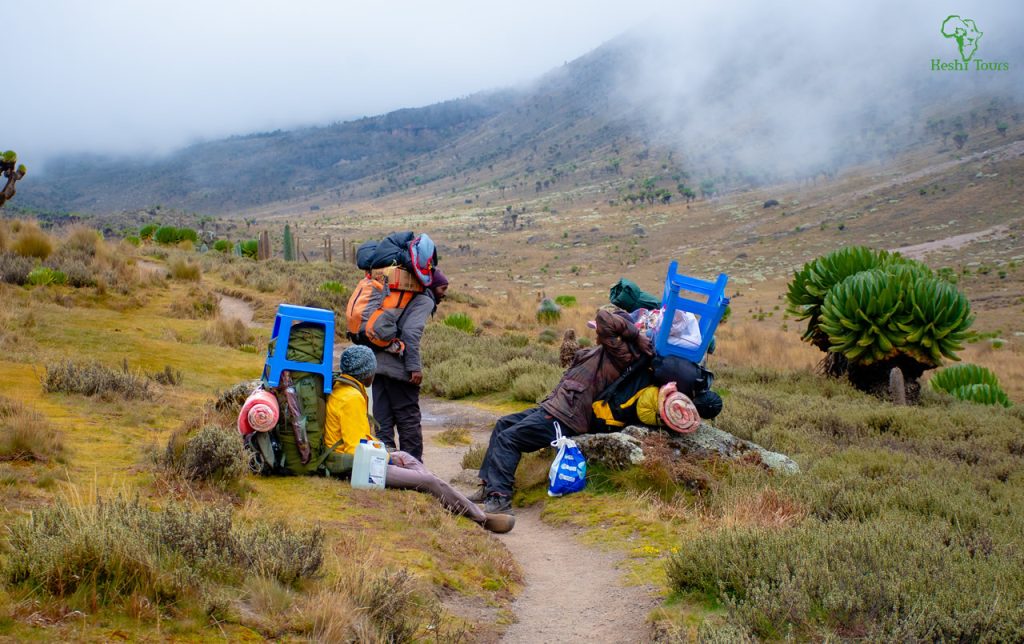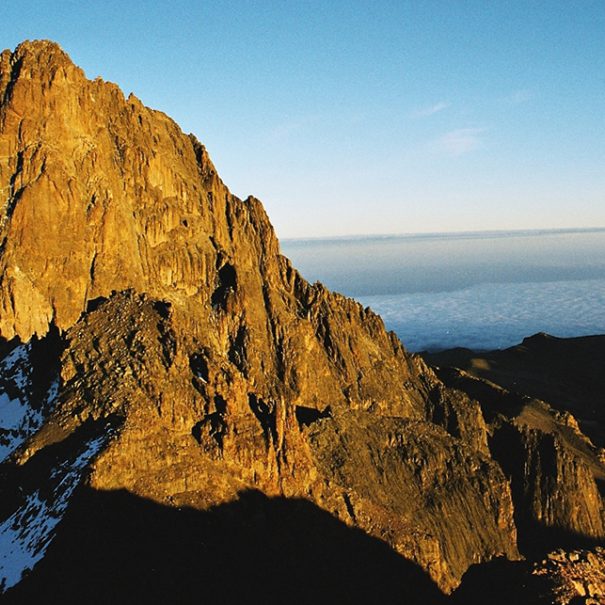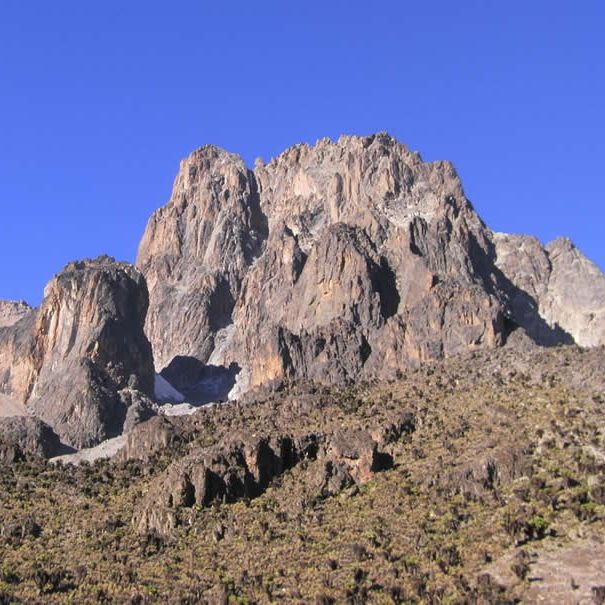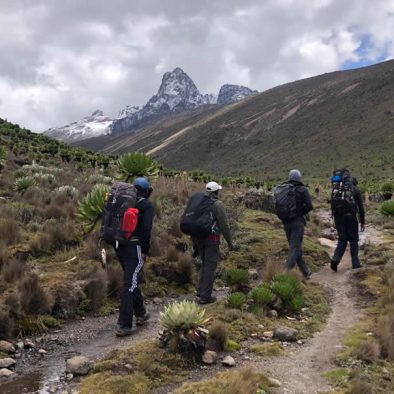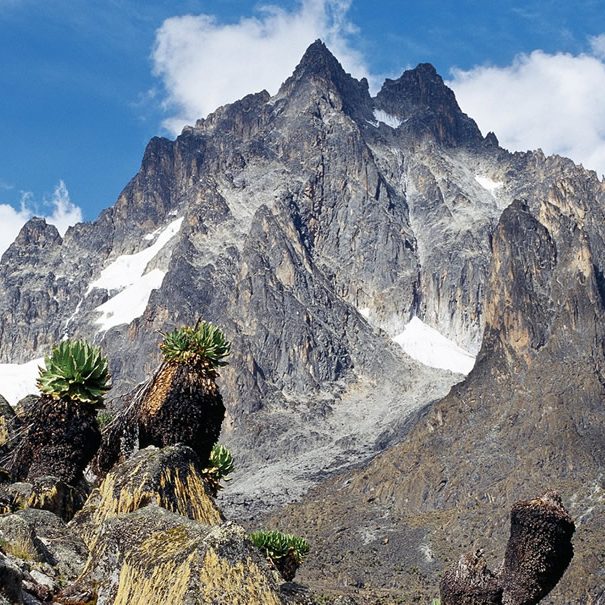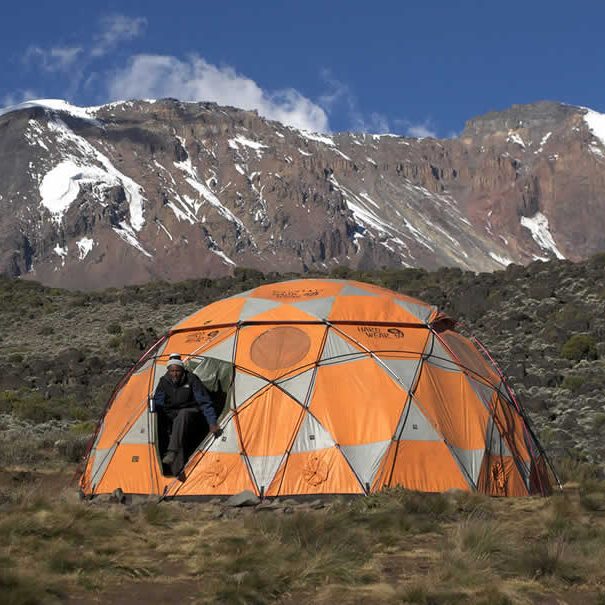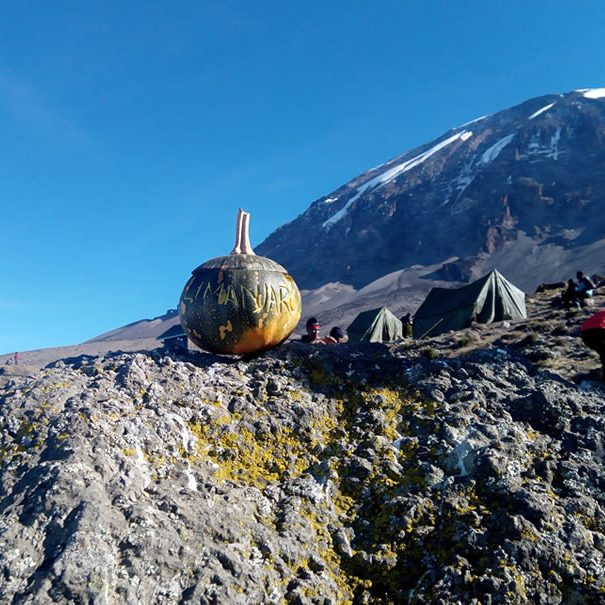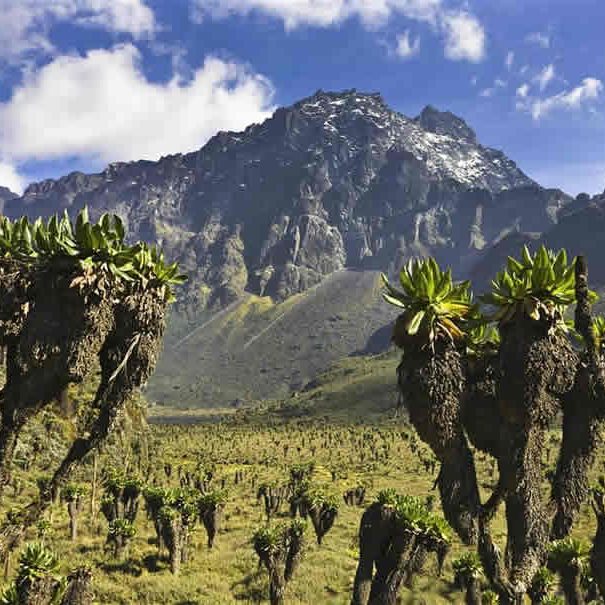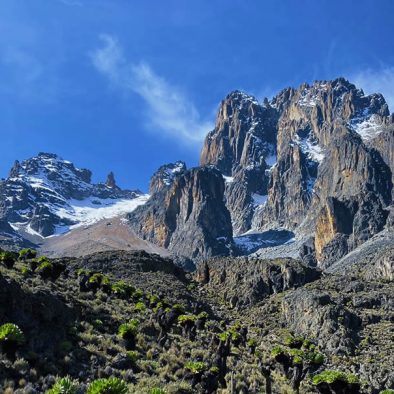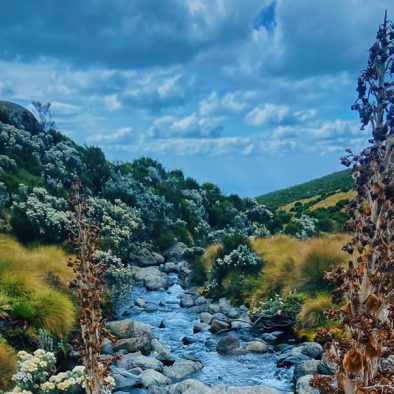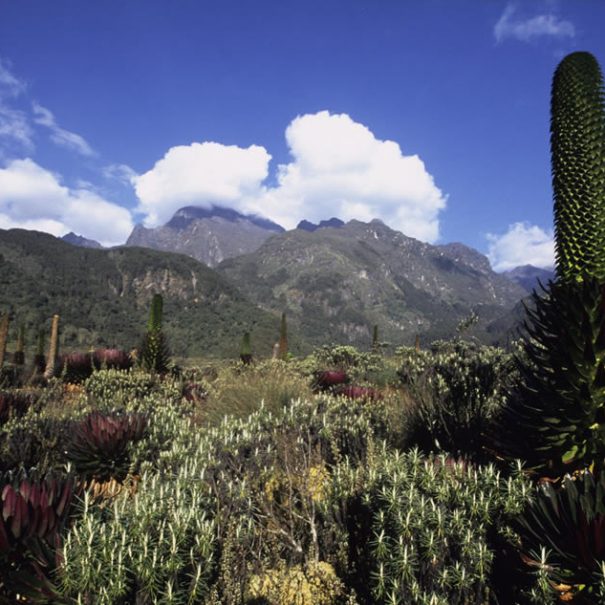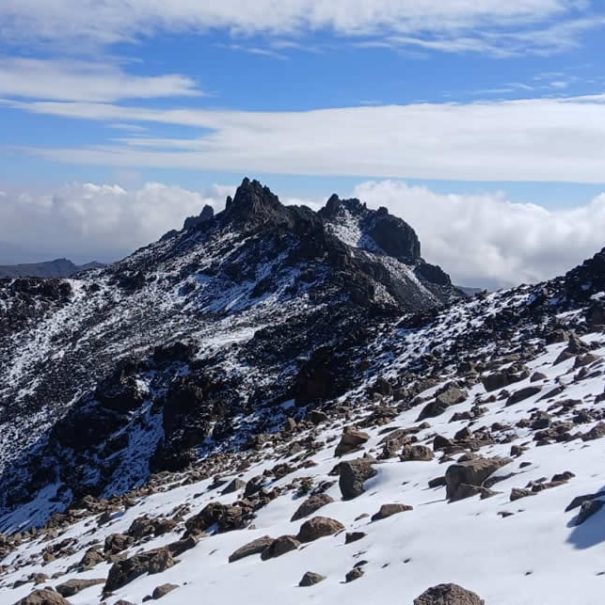Nestled majestically within the Kenyan landscape, Mount Kenya stands as a challenging yet captivating destination for adventurous souls seeking to conquer its lofty heights. As climbers embark on this awe-inspiring journey, they are accompanied not only by their determination but also by a dedicated group of individuals whose contributions often remain hidden in the shadow of the summit. In this exploration of Mount Kenya climbing, we delve into the remarkable and often overlooked role of porters and guides on Mount Kenya climbing. These unsung heroes play a pivotal role in shaping the ascent, ensuring safety, providing guidance, and facilitating an experience that extends beyond the physical challenge.
The Role of Guides on Mount Kenya Climbing: Navigating Safety and Expertise
Guides on Mount Kenya play a pivotal role that goes far beyond merely leading climbers up the slopes. These skilled professionals are the linchpin of a successful and secure climbing expedition. Their expertise in navigation, safety protocols, and mountain knowledge forms the cornerstone of a safe and enriching climbing experience.
· Expertise in Navigation and Mountain Knowledge
Guides are the guardians of the chosen routes up Mount Kenya. They possess an intricate understanding of the mountain’s topography, various trails, and changing weather patterns. This expertise is essential for ensuring that climbers navigate the terrain effectively, avoiding hazards and making informed decisions at every turn. They decipher the intricacies of the landscape, steering climbers through rocky pathways, snowfields, and steep ascents. Their mastery of the routes helps to reduce the risk of getting lost, especially in the challenging conditions that can arise at higher altitudes.
· Safety: The Prime Responsibility
Safety is the foremost concern on any climbing expedition and guides shoulder the responsibility of ensuring the well-being of the climbing party. From assessing the weather conditions and determining safe trekking times to providing guidance on necessary equipment and clothing, guides take proactive measures to minimize risks. They are trained to recognize signs of altitude sickness, dehydration, and exhaustion, intervening promptly to prevent potentially dangerous situations. This expertise in recognizing and mitigating risks enhances climbers’ confidence in their journey and allows them to focus on the experience.
· Leading and Sharing Insights
Guides don’t just lead the way; they also serve as a valuable source of insights and information throughout the climb. They narrate the history of the mountain, sharing stories of past expeditions and the cultural significance of the area. By introducing climbers to the unique flora and fauna found at different altitudes, guides enrich the experience with a deeper connection to the environment. Their role extends beyond physical guidance, creating a bridge between climbers and the natural world they traverse.
· Handling Emergencies with Grace
In the realm of mountaineering, unforeseen circumstances can quickly become emergencies. Guides are equipped with the training and skills to respond effectively to such situations. Whether it’s a sudden change in weather, a medical issue, or an unexpected obstacle, guides remain calm and composed, making quick decisions that prioritize the safety of the climbing party. Their ability to adapt and handle emergencies instills a sense of security among climbers, fostering trust in their expertise.
The Contribution of Porters on Mount Kenya Climbing
Porters are the unsung heroes who provide the backbone of logistical support during Mount Kenya climbing expeditions. Their contribution is paramount in ensuring the smooth progression of the climb, allowing climbers to focus on the journey ahead without the burden of heavy loads and logistical challenges.
· Crucial Role in Carrying Equipment and Supplies
Porters shoulder the weight of climbers’ equipment, supplies, and gear, a task that demands both physical endurance and meticulous organization. From tents and cooking equipment to food supplies and personal belongings, porters carry an array of essentials required for the climb. This responsibility entails navigating various terrains, including rocky trails and snow-covered slopes, all while balancing the load on their backs. Their contribution extends beyond mere transportation, as they become the silent carriers of climbers’ aspirations, supporting their journey towards the summit.
· Lightening the Load and Enhancing the Experience
The assistance of porters significantly lightens the load for climbers, both physically and mentally. By entrusting the transportation of heavy gear to porters, climbers can channel their energy towards the climb itself. This lightening of load allows climbers to move more comfortably and efficiently, reducing fatigue and increasing the likelihood of reaching higher altitudes. With the practicalities of carrying burdens lifted, climbers can fully engage in the experience, immerse themselves in the surroundings, and focus on personal achievement.
· Aiding in Camp Setup and Comfort
Porters are instrumental in setting up and dismantling camps at various stages of the climb. Upon reaching designated points, they efficiently assemble tents, prepare meals, and create a supportive environment for climbers to rest and rejuvenate. This behind-the-scenes effort ensures that climbers can recover after each leg of the journey, maintaining their physical well-being and mental clarity. Porters contribute to the comfort and security of the expedition, allowing climbers to recharge and be ready for the challenges that lie ahead.
· Enabling a More Accessible Ascent
Porters’ assistance not only elevates the climber’s experience but also makes Mount Kenya’s ascent more accessible to a wider range of individuals. Their efforts open doors for those who may have physical limitations or lack mountaineering experience, providing them with the opportunity to partake in the adventure. Porters democratize the climbing experience, making it possible for a diverse group of people to connect with nature and challenge their boundaries.
Conclusion
In the realm of Mount Kenya climbing, the roles of porters and guides stand as essential pillars, enriching the expedition with their unwavering dedication and expertise. Guides, with their navigation skills and commitment to safety, transform the ascent into a guided journey of discovery, ensuring climbers’ well-being and fostering a deeper connection to the environment. Porters, the unspoken heroes, bear the weight of logistical challenges, allowing climbers to ascend unburdened and embrace the journey’s true essence. Collectively, their roles elevate the climbing experience, making it not only accessible but also more fulfilling. Moreover, their contributions resonate with the principles of responsible and ethical adventure tourism, emphasizing fair treatment, respect, and sustainability, as they continue to be the unsung champions behind the scenes of Mount Kenya’s awe-inspiring summits.

